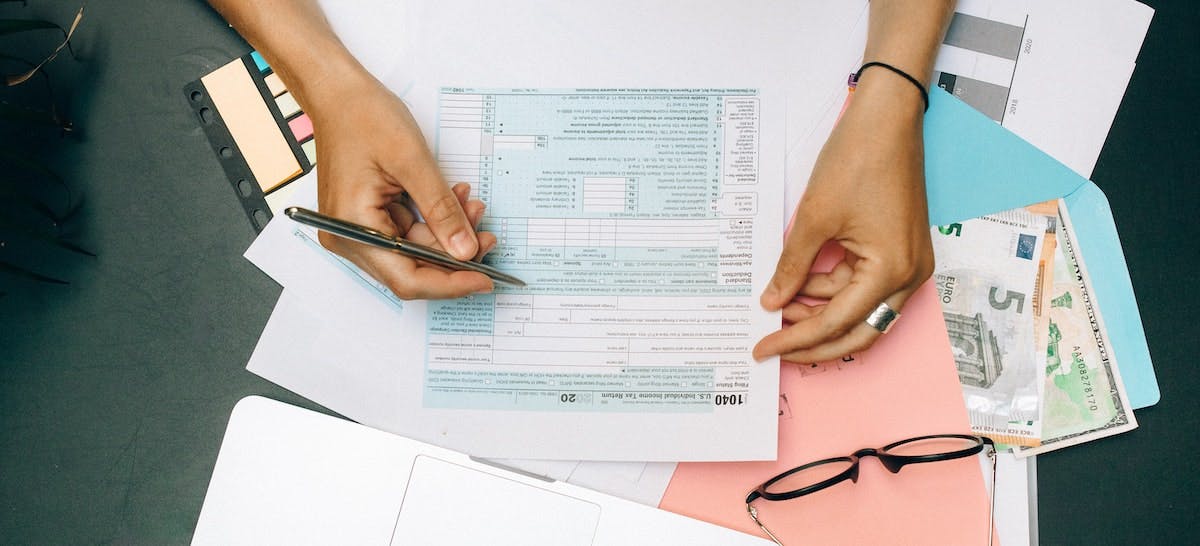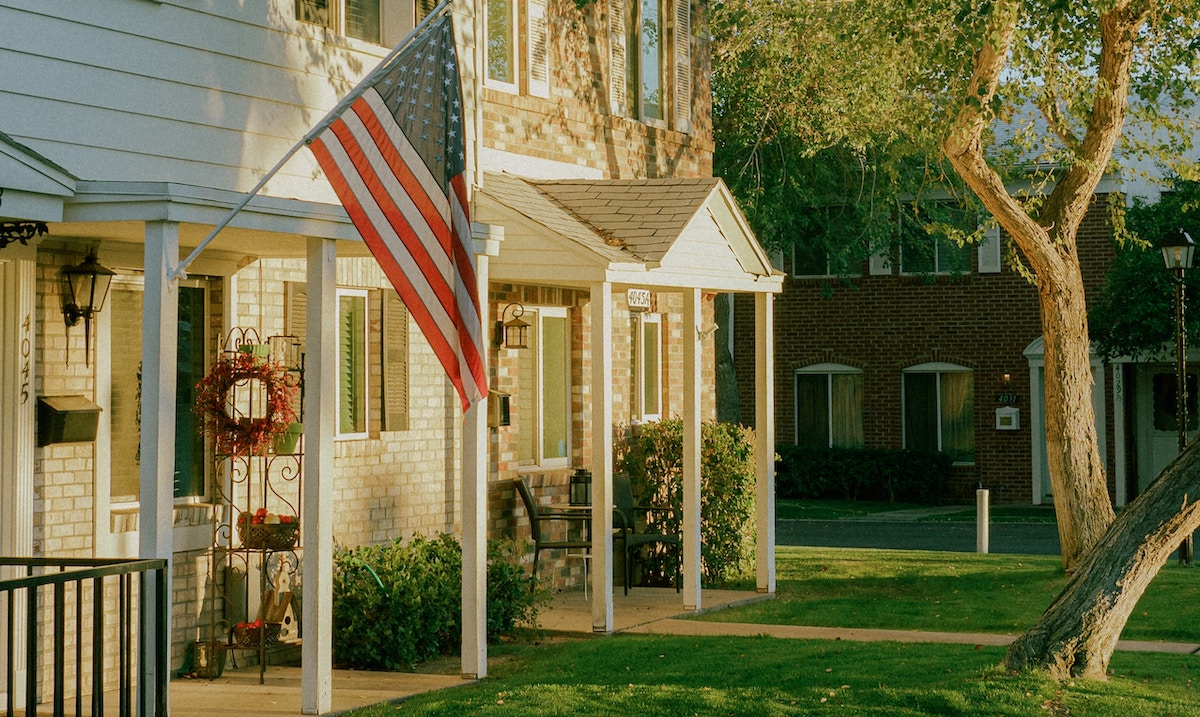Finance and Investments
2024 Federal Tax Brackets on Rental Income: A Guide for Rental Home Owners
Last Updated Nov 30, 2023


In 2024, federal income tax brackets changed to account for high rates of inflation. While we can’t provide personalized advice for your exact tax situation, if you own one or more rental properties, this guide will help you better understand the 2024 rental income tax rate and how it could impact you in upcoming tax seasons.
How do rental income tax rates work for rental properties?
Homeowners who list their home on the rental market will have federal tax responsibilities. Landlords need to report all rental income on their personal tax returns, along with documented expenses that can be deducted from this reportable income.
Rental income is taxed as ordinary income, with a landlord paying tax based on their marginal tax bracket. This is why it’s important to note the 2024 changes in tax brackets, as your rental income will affect the rate in which your income is taxed at.
The United States has a progressive tax system which means your tax rate increases as your income grows. Tax rates in the United States range from 10% to 37%. Importantly, each person is charged at multiple rates as your income rises, rather than just at the rate of the bracket into which you fall for the total amount of your income. You can also lower your tax burden or the amount of money you will owe at the end of the year by claiming certain deductions on your tax return. Rental properties attract a number of strategies that can help lower your tax liability, so good record keeping is essential.
2024 Tax Brackets and Rates
In 2024, the income limits for all tax brackets will be adjusted to accommodate inflation. The Tax Foundation lists several federal income tax rates for 2024:
2024 Income Tax Rates for Single Filers:
- $0 to $11,600 = 10% tax rate
- $11,600 to $47,150 = 12% tax rate
- $47,150 to $100,525 = 22% tax rate
- $100,525 to $191,950 = 24% tax rate
- $191,950 to $243,725 = 32% tax rate
- $243,725 to $609,350 = 35% tax rate
- $609,350 or more = 37% tax rate
2024 Income Tax Rates for Married Individuals Filing Joint Returns:
- $0 to $23,200 = 10% tax rate
- $23,200 to $94,300 = 12% tax rate
- $94,300 to $201,050 = 22% tax rate
- $201,050 to $383,900 = 24% tax rate
- $383,900 to $487,450 = 32% tax rate
- $487,450 to $731,200 = 35% tax rate
- $731,200 or more = 37% tax rate
2024 Income Tax Rates for Heads of Households:
- $0 to $16,550 = 10% tax rate
- $16,550 to $63,100 = 12% tax rate
- $63,100 to $100,500 = 22% tax rate
- $100,500 to $191,950 = 24% tax rate
- $191,950 to $243,700 = 32% tax rate
- $243,700 to $609,350 = 35% tax rate
- $609,350 or more = 37% tax rate
Read more about tax brackets and rates for 2024 in this handy guide by the non-profit Tax Foundation or see the IRS guide to Tips on Rental Real Estate Income, Deductions and Recordkeeping.
Federal taxes on real estate rentals
How you are taxed, along with any deductions and benefits you’re entitled to, varies depending on how your property is treated on the rental market and how much time you spend in the home:
- Personal residence: If your home is rented for 14 days or less in a year, the property is considered your personal residence and you won’t be required to declare any income. This means you can deduct mortgage interest and property taxes, but not any expenses relating to the property as a rental.
- Rental property: If you use your home for less than 14 days and the home is rented for 15 days or more, such as a long-term lease or popular vacation rental, it’s considered a rental property. You will need to report any rental income and deduct expenses based on the percentage of days that the home was rented out.
- The 10% rule: If your property was used personally as a residence for more than 14 days or 10% of the total days in which the home was rented, your home is considered a personal residence and you cannot deduct any rental losses. Some tax deductions still apply, but to a limited extent. This rule generally applies to homes that are used as short-term rentals for only part of the year.
There are both federal and state taxes related to your real estate rental income, but at the federal level, your net rental income is taxed as ordinary income according to your IRS tax bracket. Essentially, the rental income you collect, minus your expenses, will contribute to your total income, which is progressively taxed.
To calculate your federal income tax from rental incomes, you (or your accountant) will need to use two IRS forms:
How to calculate your rental income
To determine your rental property income (and rental income tax rate), you’ll need to subtract any rental property expenses from the total income generated from your rental property. This number becomes your total taxable income before depreciation. Once you calculate and deduct depreciation from that number, you will add the remaining amount to any other taxable income.
To complete your taxes accurately, it’s advisable to get help from an accountant. If your rental property is eligible for deductions on your tax return, any costs associated with professional advice such as legal assistance or accounting can be claimed as an expense.
Rental property income
Rental property income is primarily the rent you collect from your residents. However, there are several other potential sources of income that you will need to include. If your residents have pre-paid some or all of their future rent, you’ll need to include this as part of your rental property income. Security deposits that were not returned to a resident should also be included. If you are still in possession of a security deposit and the lease has not expired, you should categorize those amounts as a short-term liability on your balance sheet, so they are not included in your income.
Any additional fees, such as pet or lease cancellation fees, will also contribute to your total rental property income. Finally, you’ll need to include tenant-paid owner expenses in calculating your rental property income. These types of expenses can occur if your resident is not obligated to pay for utilities, like water or electricity, as part of their lease but they make a payment and are not reimbursed.
Rental property tax deductions
Rental property tax deductions come in the form of expenses related to the operation and management of your property. These deductions work by lowering the overall taxable income at the end of the year.
Common rental property tax deductions include:
- HOA fees
- Advertising and marketing
- Insurance
- Cleaning, maintenance
- Legal or professional fees
- Mortgage interest
- Property taxes
- Utilities, pest control, and other services
Property management for a rental property is considered professional fees and are tax-deductible. This also means you can claim fees from Belong. Although Belong is not a traditional property management company, Belong takes on all of the responsibility of looking after your home and residents, so you can include fees and maintenance from our vendor network as deductions in your tax return.
Rental property depreciation
Another key piece of information needed to calculate your taxable rental property income relates to the depreciation of your property. This is an essential step, as depreciation lowers your taxable income over a period of time.
You can deduct the costs of buying and improving a rental over its useful life through a process called depreciation. Depreciation is calculated using a modified accelerated cost recovery system (MACRS). Essentially, this allows you to depreciate your property over the course of 27.5 years, which is considered the useful life of your property. This equates to 3.636% each year. Keep in mind that depreciation does not include the value of the land because land does not become less useful over time. Therefore, land does not depreciate.
We recommend you engage a tax professional to assist in identifying the correct depreciation amount. You can estimate your depreciation by taking the amount you paid for the property, minus the value of the land and dividing by 27.5. This should give you an estimated amount for your yearly depreciation deduction.
As you make capital improvements to your property, you can add this amount to the property's value and recalculate your depreciation. Again, this is best done with consultation from a tax professional. For more detailed information, you can review IRS Publication 946: How to depreciate property.
Qualified Business Income Deduction (QBI)
Also known as the section 199A deduction, the Qualified Business Income (QBI) Deduction lets landlords potentially deduct up to 20% of their qualified business income — including rental income from an investment property. There are income thresholds and activity requirements to qualify for QBI, but most non-corporate landlords qualify for the deduction. In 2024, total taxable income for the year must be under $191,950 for individual taxpayers (increasing from $182,100 in 2023) or $383,900 for joint filers (up from $364,200 in 2023).
Other types of rental property taxes
While your federal taxable rental property income will account for the major portion of your tax burden, there are several additional taxes related to owning a rental property.
State real estate taxes
It’s likely that you are already familiar with property taxes. This is the amount you pay monthly, along with your mortgage payments. This amount is based on the assessed value of your home and varies depending on your state’s property tax rate.
In most instances, the tax rate on rental income is based on federal standards. However, each state has its own guidelines regarding taxable rental income. In addition to understanding property taxes, you should familiarize yourself with local guidelines or engage the services of a tax professional in the state where your property is located.
Capital Gains Tax
The capital gains tax is related to selling and buying real estate. Even if you have no plans to sell your rental property, you should familiarize yourself with this tax to plan appropriately for the future. If you sell a property at a profit after owning it for at least one year, you will owe a capital gains tax. The IRS provides detailed information regarding the capital gains tax: Internal Revenue Service. “Tax Forms and Instructions,” Pages 8–9. The capital gains tax exists to ensure that property owners are taxed in accordance with how their property appreciates or increases in value.
Long-term capital gains are taxed on different brackets and rates than income. The 2024 Capital Gains Tax Brackets are:
- For Unmarried Individuals, Taxable Income Over $0 = 0%
- For Unmarried Individuals, Taxable Income Over $47,025 = 15%
- For Unmarried Individuals, Taxable Income Over $518,900 = 20%
- For Married Individuals Filing Joint Returns, Taxable Income Over $0 = 0%
- For Married Individuals Filing Joint Returns, Taxable Income Over $94,050 = 15%
- For Married Individuals Filing Joint Returns, Taxable Income Over $583,750 = 20%
- For Heads of Households, Taxable Income Over $0 = 0%
- For Heads of Households, Taxable Income Over $63,000 = 15%
- For Heads of Households, Taxable Income Over $551,350 = 20%
Depreciation Recapture Tax
Rental property owners must also understand how the depreciation recapture tax can impact their tax returns. If and when you sell your rental property, the IRS will collect a certain amount of the depreciation deductions you have taken on the property. This amount is calculated not by how much of a deduction you have taken in the past but by the
depreciation deduction you should have taken. If you failed to take a depreciation dedication, you would still own the depreciation recapture tax. The depreciation recapture tax is based on your ordinary income tax rate and is capped at 25%.
Belong simplifies tax time for landlords
Belong makes managing your rental property taxes easier, because you always know where you stand. Your rental income is consistent, with guaranteed rent ensuring that you always know exactly how much you will earn, regardless of when residents pay.
Belong PRO homeowners can also manage all maintenance and repairs through the Belong app, giving you full visibility over your property income and expenses in one place.
Each year we'll send you a statement for you or your accountant to work through, plus your concierge is on hand to assist if you need to clarify any information around earnings or charges. And did we mention that Belong fees are tax deductible?
Find out if your rental home qualifies at belonghome.com/homeowners.
Disclaimer: We prefer to refer to members in our network as homeowners and residents, not landlords and tenants, since we’re on a mission to upend and redefine the traditional landlord-tenant relationship. That said, there’s a big difference between residential ‘homeowners’ and ‘landlords’ when it comes to tax matters, so in some instances we have had to stick to the old term for owners of rental homes. This article is designed to support your research on income tax for rental income and should not replace advice from an accountant or lawyer tailored to your personal financial situation.
About The Author
Melanie Kershaw
Mel Kershaw is a Content Lead at Belong. With an extensive background working with technology companies including Eventbrite and Yelp, she’s always looking for ways to create educational and informative articles that simplifies tech and solves problems for her audience.




